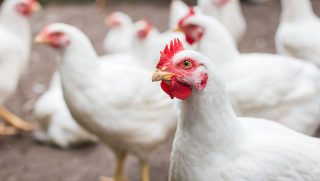Farming has one of the highest suicide rates of any professional industry, so it’s no surprise when anyone acknowledges just how stressful the occupation can be. While information about mental health in farming is becoming more prevalent, little is known about how anxiety and depression in farmers affect their families.
Agriculture is a unique industry — most of the work occurs on private, independently-owned and operated farms and ranches. Farm and ranch youth, in particular, are exposed to many of the same occupational hazards as their adult counterparts. Additionally, the industry as a whole has been experiencing an economic downturn over the last decade. Among some of the greatest stressors, personal finances, economics, and fluctuating commodity prices are cited as sources of stress.
To address the challenges families in agriculture face with mental health, a new study from the University of Illinois Urbana-Champaign explored how specific economic stressors affect the mental health of U.S. farmers and their adolescent children. Rudolphi and Richard Berg co-authored the five-year study funded by the National Children’s Center for Rural and Agricultural Health and Safety.
The objective of the study was to estimate the prevalence of symptoms of depression and anxiety among farm adults and their adolescent children and examine the correlation between symptoms of mental health conditions and financial indicators described in the Family Stress Model.
“There’s a lot of young people growing up on a farm and participating in agricultural work. We’ve long acknowledged the inherent hazards of this work environment, and now we’re also recognizing its impact on mental health,” said Josie Rudolphi, Illinois Extension specialist and assistant professor in the Department of Agricultural and Biological Engineering, part of the College of Agricultural, Consumer and Environmental Sciences and The Grainger College of Engineering at the U. of I.
Farm families were recruited to participate in the study through online surveys by mail, email, and social media. For the study, one adolescent and at least one adult from each family were invited to complete the survey.
In total, 122 farm families completed the online survey. The mean age of parents was just over 41 years old, and the mean age of youth participants was just over 15 years old.
“Most of the work on farm stress and mental health is primarily focused on adult farmers. However, it is important to recognize that children are fully aware of what’s happening on the farm, and they are not immune to the stressors that exist. That is the inspiration behind this project,” added Rudolphi.
The study is in its third year of data collection, but so far, Rudolphi and Berg have discovered that about 60 percent of both adults and adolescents met the criteria for at least mild depression, while 55 percent of adults and 45 percent of adolescents met the criteria for generalized anxiety disorder.
“Prevalence of depression in the general population is typically around 17 to 18 percent, so these numbers are quite high. Although we don’t have a control group for direct comparison, we used similar instruments to screen for mental health conditions as national public health surveys. Additionally, these statistics are not unusually high for a farm sample, based on previous surveys with farmers,” Rudolphi said.

»Related: Exercise: A break from the stress of agriculture
Farm debt directly affected farm youth
Not surprisingly, farm debt showed a high correlation with depression in adults, which then correlated to depression and anxiety in adolescents.
Unlike other occupations, farm families don’t always have the opportunity to leave work at work. “There’s a blur between work and family, or business and residence, so it becomes rather complicated,” noted Rudolphi.
Farmers may not be keen on admitting they’re struggling. Although 82 percent of respondents rated their mental health as good or excellent, responses to the questions measured anxiety and depression.
“Illinois Extension offers a number of mental health programs for the agricultural community, but many of them primarily target the owner-operators. We must also consider the well-being of spouses and children on the farm,” she said. “The agricultural environment prides itself on looking out for one another. We should harness that shared responsibility to foster a sense of community and support for young people. This involves engaging with rural schools, teachers, coaches, and agricultural youth leaders in mental health awareness initiatives.”


